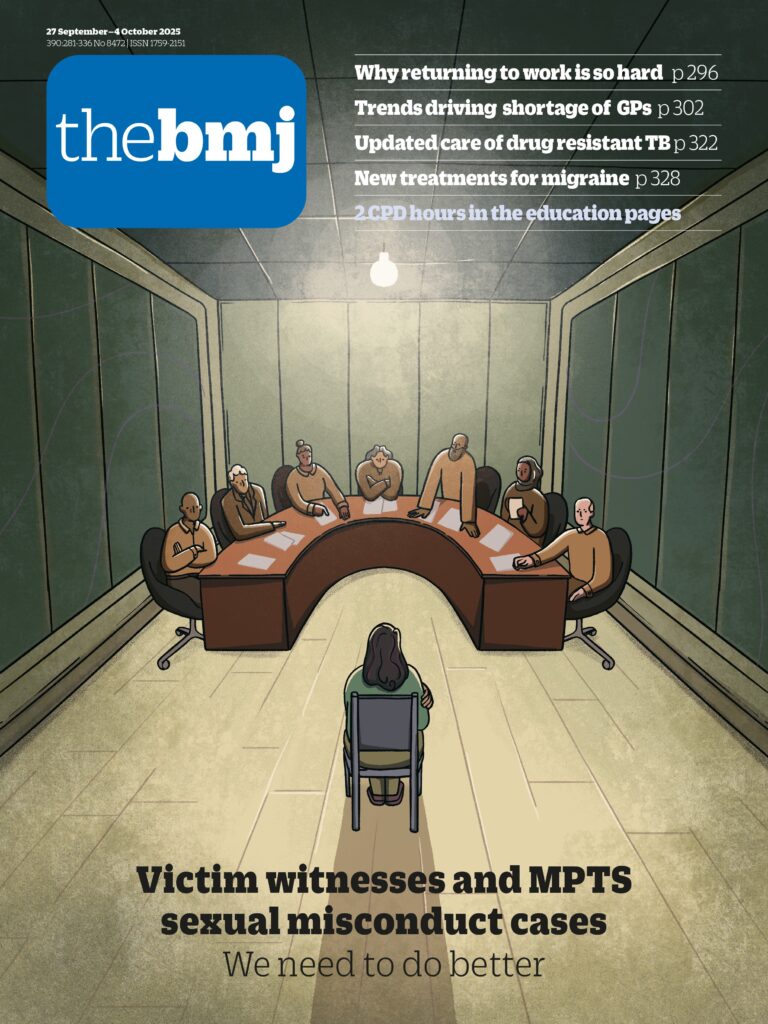GP trainee Asif Khapedi tells Kathy Oxtoby how playing football helps him stay connected with his community
Asif Khapedi, a GP trainee in London, is a fan of the “beautiful game.” He watches and plays football with former school friends and doctor colleagues, finding the twice weekly games “a release” from the pressures of training.
“Being able to switch off, even temporarily, helps me to get my energy back up for when I need to go back into work,” he says. “The day after a really hard shift or a block of on-calls, knowing I can just do something for me, without having to take responsibility, helps settle my nerves and the adrenalin I’m feeling after working a large number of hours. Football gets rid of all that stress and tension.”
Khapedi has loved football for as long as he can remember. Growing up in east London he became a supporter of his local team, West Ham United, and continues to go to matches.
“Football is exciting and unpredictable; you never really know which way a game is going to go,” he says. Then there’s the camaraderie and sense of belonging, knowing that thousands of your team’s supporters are “in the same boat as you,” he says.
It’s also important to “support your local community, and supporting your local team is part of that,” he believes.
While Khapedi loves watching the beautiful game, playing is his preference. “That buzz you get from playing football and scoring goals—it’s up there with your favourite team winning.”
At school, he enjoyed playing football with his friends and in matches as part of the school team. Then as an adult, “I wanted to carry on playing, because of the pure enjoyment. And, also, it’s a time when I don’t think about anything else but the game,” he says.
While studying medicine at King’s College London, and during his time working as a foundation doctor in Essex, he continued to play. And when he decided to become a GP, his choice of specialty, like his choice of leisure time, had a community focus. “I felt being a GP working in the community was the best way to give back.”
He still plays football with old school friends from the area he grew up in, where he is now based as a trainee GP. “After school, people move on and have their own lives. But having a set time where you’re all in the same place can help you to stay in contact.”
A midfielder as a rule, he plays five, seven, or eight-a-side football typically twice a week, normally in the evenings after work, on his local pitch or at different sports centres across London. He also plays football with people he met at medical school or has worked with during his training.
Five-a-side football, because you need fewer people to play, is “easier to organise” and therefore more accessible to busy doctors, Khapedi explains. “If you have a busy job like a lot of doctors do, you can go for an hour to play a game and not have to think about it too much, whereas with a full eleven-a-side game, normally you have to sign up to play for a team, and you have to train. But working as a doctor where you have a lot of weekend and night work, you don’t really have the energy to commit to something like that most of the time.”
There are also apps doctors can use to connect with others to meet up and play football. “So that if you’re on a busy shift you can still fit playing football around that time and meet new people as well.”
Khapedi finds meeting up with other doctors to play football helps him better connect with them. “I feel like when we’re working, we don’t really have time to speak to each other just as people and it’s very much transactional—‘you do this, you do that’. Whereas meeting up outside of work to play football helps at work, because you feel as though you’re not just colleagues. Sometimes after football we’ll go out to eat and chat—it’s all part of the experience.”
“Staying calm” is one of the biggest skills he brings as a clinician to playing football. “It’s important in sports, but also in work and life.”
How to get into playing football
-
Find a group of friends or colleagues to play with
-
Go online to find local leisure facilities
-
You will need comfortable sports clothing, football trainers, and shin pads
-
Start playing, and try to play without expectations or judgments so that games are beginner friendly

